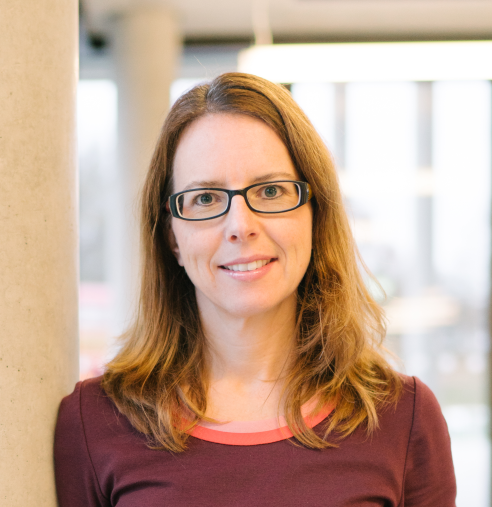
Annette Jäckle
Read Annette's Bio
Background
Annette Jäckle is Professor of Survey Methodology at the Institute for Social and Economic Research at the University of Essex in the UK. She is Associate Director of Innovations for the Understanding Society household panel study. In this role she oversees the Innovation Panel, a survey that is used for methods testing and experimentation, and leads a programme of research on innovations in data collection methods. Her current research focuses on consent to data linkage, methods for event-triggered data collection, and data collection using mobile apps.

Jonathan Best
Read Jonathan’s Bio
Background
Jonathan Best has over 25 years of experience in public opinion research and has been involved in all aspects of the process including data processing and analysis, project management and sample design. He has extensive experience working with telephone rooms to maximize sample productivity and data quality. Jonathan specializes in designing and weighting complex samples of hard to reach populations, including low-income households, minorities and small area samples. He has designed and weighted samples for international projects conducted using telephone and in-person data collection. He was at the forefront of incorporating cell samples into standard RDD landline designs and was involved in refining cell phone data collection methods. Jonathan earned his Bachelor’s Degree in Mathematics from North Carolina State University. He is a long-time member of AAPOR where he routinely presents papers, and is also a member of the American Statistical Association, where he has served on the Survey Review Committee.

Ipek Bilgen
Read Ipek's Bio
Background
Ipek Bilgen is a Senior Research Methodologist in the Statistics and Methodology Department at NORC at the University of Chicago. Bilgen is AmeriSpeak Panel’s lead research methodologist. She has over a decade of experience in applied survey methods and received both her Ph.D. and M.S. from the Survey Research and Methodology (SRAM) Program at the University of Nebraska-Lincoln.
Bilgen has published and co-authored articles in Journal of Official Statistics, Public Opinion Quarterly, Survey Practice, Social Currents, Social Science Computer Review, Field Methods, SAGE Research Methods Foundations, and Quality and Quantity on issues related to interviewing methodology, web surveys, internet sampling and recruitment approaches, cognition and communication, and measurement error in surveys. She is a frequent speaker in national and international conferences and workshops on survey methodology. Her research investigates panel recruitment and retention, total survey error sources in probability-based web (/mostly web) panels, the use of web and emerging technologies in surveys, and questionnaire design and survey implementation issues. Her research also includes studies related to interviewer and respondent interaction in surveys, the use of auxiliary data for improved efficiency in surveys that use address-based sampling (ABS), and active survey recruitment through social media and search engines.
Bilgen is currently serving on American Association for Public Opinion Research (AAPOR)’s Executive Council as Membership and Chapter Relations Associate Chair. She is also serving on Midwest Association for Public Opinion Research (MAPOR)’s Executive Council as Past President. In the past, she has served as President, Conference Chair, and Secretary Treasurer of MAPOR.

Wändi Bruine de Bruin
Read Wändi's Bio
Background
Wändi Bruine de Bruin is Provost Professor of Public Policy, Psychology, and Behavioral Science at the University of Southern California. She holds a PhD in Behavioral Decision Making and Psychology from Carnegie Mellon University. Her research focuses on understanding and informing how people make decisions about their health, finances, and environmental footprint, as well as on age differences in decision making. She serves on the editorial boards of Psychology and Aging, Journal of Experimental Psychology:Applied, Medical Decision Making, Journal of Behavioral Decision Making, Journal of Risk Research, and Decision. She has designed modules for USC's Understanding America Study and RAND's American Life Panel. She has served on expert panels on improving risk and science communication, including for the National Academy of Sciences.

Jeremy Burke
Read Jeremy’s Bio
Background
Jeremy Burke is a Senior Economist at the University of Southern California’s Center for Economic and Social Research. His main fields of research are behavioral economics and consumer financial decision-making. Currently, he is leading multiple field experiments leveraging behavioral principles to help consumers build savings (with soft-commitment mechanisms), reduce debt (with lottery linked incentives), and build credit (with various behavioral nudges). In other research he is examining how automatic enrollment influences cash-out decisions at job separation, the efficacy of socially annotated and modular disclosure in improving investment decisions, the prevalence and impacts of conflicts of interests in financial advice markets, and whether nudges received in advance can help indebted consumers leverage tax refunds to reduce their debt burdens. Jeremy received his Ph.D. in Economics from Duke University and previously was an Economist at RAND, Associate Director of RAND’s Center for Financial and Economic Decision Making, and a professor in the Pardee RAND Graduate School.
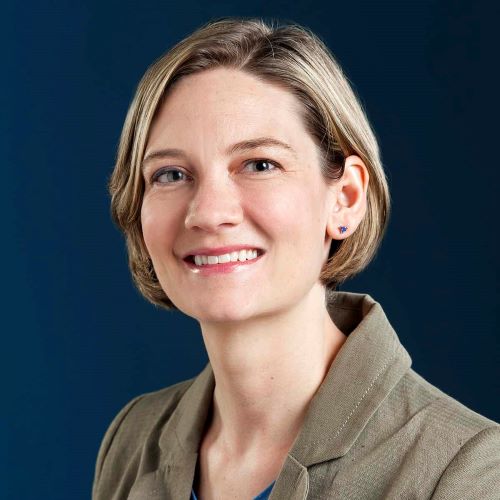
Katherine Carman
Read Katherine's Bio
Background
Katherine Carman is a Senior Economist at the RAND Corporation, Director of RAND’s Center for Financial and Economic Decision Making, and a professor at the Pardee RAND Graduate School. Her research focuses on behavioral economics, health economics, and public economics. Katherine is particularly interested in how individuals’ beliefs, perceptions, and decisionmaking processes affect their choices. Currently she is studying health insurance decisions and retirement decisions. She is also interested in the effects of peer behavior and characteristics on individual choices. Previously, Katherine was an assistant professor at Tilburg University and affiliated with CentER and Netspar. She was a Robert Wood Johnson Scholar in Health Policy Research at Harvard University. She received a Ph.D. in economics from Stanford University.

Necati Celik
Read Necati's Bio
Background
Dr. Celik taught and researched economics before joining the Financial Health Network as an associate. He is currently working on the U.S. Financial Health Pulse project, an ongoing study of financial health using both survey and transactional data.

Heng Chen
Read Heng's Bio
Background
Heng Chen is a Principal Researcher in the Currency Department at the Bank of Canada. His primary research interests center on the structural identification and estimation of the causal effects of the method of payments on the cash usage.

Marcel Das
Read Marcel's Bio
Background
Marcel Das holds a PhD in Economics from Tilburg University (1998). In 2000, he became the director of CentERdata, a survey research institute specialized in web-based surveys and applied economic research, housed at the campus of Tilburg University. As a director of CentERdata Das has managed a large number of national and international research projects. He coordinated the central development of survey instruments for the Survey of Health, Ageing and Retirement in Europe (SHARE), currently with 28 participating countries. He is one of the principal investigators of the Dutch MESS project, with the LISS panel as central component, for which CentERdata received major funding from the Dutch Government. Since February 2009, Das is Professor of Econometrics and Data collection at the Department of Econometrics and Operations Research of the Faculty of Economics and Business Administration at Tilburg University. He has published a number of scientific publications in international peer-reviewed journals in the field of statistical and empirical analysis of survey data and methodological issues in web-based (panel) surveys. Das is member of five (inter)national scientific advisory boards of large-scale data infrastructures and he serves as member of Statistics Netherlands’ Advisory Council on Methodology and Quality.

Patricia Delafuente
Read Patricia's Bio
Background
Patricia Delafuente is part of the adjunct Graduate Data Science Faculty with the University of Maryland Baltimore County and the Senior Director of Data Science for NewWave Telecom & Technologies. She is a Data Scientist with over twenty years of database engineering, business intelligence, and analytics experience. She holds a Master of Science in Analytics from Texas A&M University and a Bachelor/Master of Science in Information Systems. She holds numerous technical certifications and as a University Ambassador for Nvidia, she is certified to teach several Nvidia Deep Learning Institute courses. She is a frequent guest speaker at community data science related events. Her interests are machine learning, text mining, and using GPUs/distributed processing to improve the performance of analyzing and processing big data.
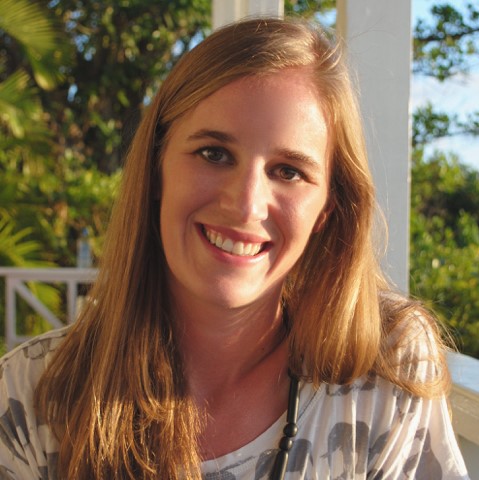
Sarah Dumas
Read Sarah's Bio
Background
Dr. Sarah E. Dumas is an epidemiologist in the Bureau of Epidemiology Services at the New York City Department of Health and Mental Hygiene. She is the Project Manager for the Health Opinion Poll (HOP), an online survey that measures New Yorkers’ knowledge, awareness, opinions, and attitudes about health, health care, and health-related programs and policies. She is also overseeing the development of a probability-based panel that will facilitate more efficient data collection for HOP and other surveys related to the health of New York City adults. Dr. Dumas received Bachelor’s in Biology from Pomona College and her Doctor of Veterinary Medicine (DVM) from Cornell University. In 2017, she completed her PhD at Cornell in epidemiology and international nutrition, where her research focused on the links between livestock production and improved maternal and child nutrition outcomes in rural, resource-poor communities.

Mansour Fahimi
Read Mansour’s Bio
Background
Dr. Mansour Fahimi is the Chief Statistician and a Senior Vice President at Ipsos Public Affairs USA. For 30 years, Mansour has been providing statistical expertise and hands-on support for projects from design to delivery while investigating innovative refinements for market and survey research methods. He works on design and administration of complex surveys for both public and private sector clients, as well as data enhancement methods, process optimization procedures, and program evaluation tasks. In recent years, Mansour has been working on online data collection methods where his research and publications have focused on improving the inferential possibilities of data from compromised samples. He has developed innovative calibration techniques to compensate for the limitations of data with unspecified representational properties, as well as supplementation of structured surveys with data from nontraditional sources to address clients’ evolving informational needs. Dr. Fahimi has numerous publications and presentations to his credit and has served on technical advisory boards for reviewing government surveys.

Frank Graves
Read Frank's Bio
Background
Mr. Graves is one of Canada’s leading public opinion, social policy and public policy experts as well as being one of its leading applied social researchers. In 1980, he founded EKOS Research Associates Inc., an applied social and economic research firm. Under the leadership of Mr. Graves, EKOS has earned a reputation for creative and rigorous research in the areas of public policy, social policy and program evaluation and as a leader in innovative survey techniques and methodology. During his career he has directed hundreds of large scale studies of Canadian attitudes to a vast array of issues. His analysis and advice has been sought by senior decision makers in both the private and public sectors. Mr. Graves is a Fellow of the Canadian Research Insights Council (CRIC) as well as an Honorary Fellow with the Calgary School of Public Policy and sits on the Advisory Board at the Sprott School of Business.

Arie Kapteyn
Read Arie's Bio
Background
Arie Kapteyn Ph.D., is a Professor of Economics and the Executive Director of the Dornsife College of Letters Arts and Sciences Center for Economic and Social Research (CESR) at the University of Southern California. Before founding CESR at USC in 2013, Prof. Kapteyn was a Senior Economist and Director of the Labor & Population division of the RAND Corporation. He came to RAND after an almost twenty years stint at Tilburg University in the Netherlands, where he was professor of economics, dean, and founding director of several institutes. Much of Prof. Kapteyn’s recent applied work is in the field of aging and economic decision making, with papers on topics related to retirement, consumption and savings, pensions and Social Security, disability, economic well-being of the elderly, and portfolio choice. He is a pioneer in the development of new methods of data collection, using the Internet and mobile devices. He has about 20 years of experience in recruiting and running population representative Internet panels, including the CentERpanel (2000 respondents; the first probability Internet panel in the world) in the Netherlands, as well as the American Life Panel (6000 respondents) and the Understanding America Study (8500 respondents) in the US. He has conducted numerous experiments with the panels, concerning methods (e.g. optimal recruiting and survey design), substantive studies (including health and decision making), and measurement (self-administered biomarkers, physical activity, time use, weight and impedance measurement using advanced bathroom scales). Furthermore, he has been involved in telephone and in-person surveys on various continents. Dr. Kapteyn received an M.A. in econometrics from Erasmus University Rotterdam, an MA in agricultural economics from Wageningen University, and a Ph.D. from Leiden University, all in the Netherlands. He is a fellow of the Econometric Society and holds a knighthood in the order of the Netherlands Lion.
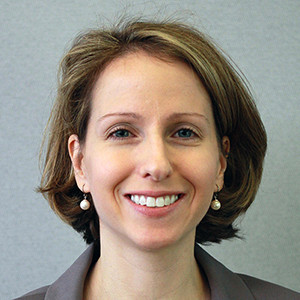
Courtney Kennedy
Read Courtney’s Bio
Background
Courtney Kennedy is director of survey research at Pew Research Center. In this role, she serves as the chief survey methodologist for the Center, providing guidance on its survey research including Pew’s online, probability-based American Trends Panel. She has served as standards chair and conference chair of the American Association for Public Opinion Research. Kennedy has a doctorate from the University of Michigan and a master’s degree from the University of Maryland, both in survey methodology.

Annamaria Lusardi
Read Annamaria's Bio
Background
Annamaria Lusardi is the Endowed Chair of Economics and Accountancy at the George Washington University School of Business (GWSB). Previously, she was the Joel Z. and Susan Hyatt Professor of Economics at Dartmouth College, where she taught for twenty years. She has also taught at Princeton University, the University of Chicago Harris School of Public Policy, the University of Chicago Booth School of Business, and Columbia Business School. From January to June 2008, she was a visiting scholar at Harvard Business School. Moreover, she is the founder and academic director of GWSB’s Global Financial Literacy Excellence Center (GFLEC). She holds a Ph.D. in Economics from Princeton University and a BA in Economics from Bocconi University. Dr. Lusardi has won numerous research awards. Among them is a research fellowship from the University of Chicago Harris School of Public Policy, a faculty fellowship from the John M. Olin Foundation, and a junior and senior faculty fellowship from Dartmouth College. She was also awarded the 2015 Financial Literacy Award from the International Federation of Finance Museums, the 2014 William A. Forbes Public Awareness Award from the Council for Economic Education, the 2013 William E. Odom Visionary Leadership Award from the Jump$tart Coalition for Personal Financial Literacy, and the National Numeracy Network’s inaugural 2012 Steen Award. Moreover, she is the recipient of the 2007 Fidelity Pyramid Prize, an award to authors of published applied research that best helps address the goal of improving lifelong financial well-being for Americans. In 2009, she served as a faculty advisor for the Office of Financial Education of the U.S. Treasury.

Jenny Marlar
Read Jenny's Bio
Background
Jenny Marlar is the Director of Research for the Gallup Panel and specializes in panel methodology and the recruitment and retention of probability-based panels. Her work often involves targeting low incidence or hard to reach populations and exploring methodologies for improving response rates. Marlar is also a lead researcher for Gallup on initiatives exploring new technologies for self-administered survey data collection, such as smartphones, text messaging and mobile applications. Marlar has a Ph.D. in Survey Research and Methodology from the University of Nebraska-Lincoln.

Andrew Parker
Read Andrew's Bio
Background
Andrew M. Parker is director of the Center for Decision Making under Uncertainty, a senior behavioral and social scientist at the RAND Corporation, and a member of the Pardee RAND Graduate School faculty. His research applies core concepts in behavioral decision research to the understanding of decisions in complex, real-world situations. He currently coleads a National Institute of Allergies and Infectious Diseases-funded project examining how influenza risk perceptions propagate across social networks and influence vaccination decisions. He received his Ph.D. in behavioral decision theory from Carnegie Mellon.
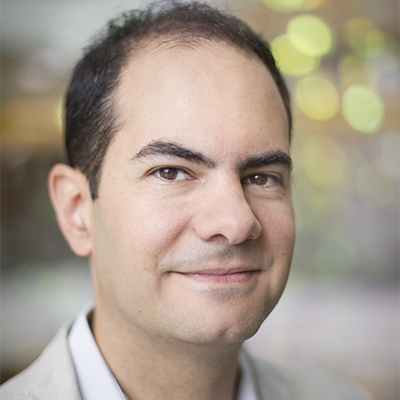
Francisco Perez-Arce
Read Francisco's Bio
Background
Francisco Perez-Arce is an economist at CESR, based in the Washington, DC office. He obtained his PhD in economics from Princeton University and then spent six years at RAND. His interests center mostly on the relationship between behavioral economics and public policy in the setting of labor, aging, education and development economics. In a subset of his research, he focuses on how the effects of public policies are shaped by behavioral parameters. He has studied how a lack of consumption smoothing shapes the impacts of the frequency of pension payments; and how the timing of college admissions can affect long-term education attainment. In other research, he investigates whether public policy may affect the preference and decision-making parameters that determine behavior. His research in this area includes investigations on the impact of education on time-preferences and decision-making. His work has been accpeted for publication in the Review of Economics and Statistics, the Journal of Labor Economics, the Economics of Education Review, the American Economic Review Papers and Proceedings, the Journal of Public Administration and Management, the Journal of Consumer Affairs, among other.

Matthias Schonlau
Read Matthias's Bio
Background
Dr. Schonlau is a Professor in the Department of Statistics and Actuarial Science at the University of Waterloo, Ontario, Canada. Prior to his current appointment he spent 14 years outside of academia at the RAND Corporation, the National Institute of Statistical Sciences, AT&T Labs and the German Institute for Economic Research, DIW. He has served as director of the Survey Research Centre at the University of Waterloo and as head of consulting at the RAND corporation. He was on the board of the European Survey Research association. His interests include applied survey research -- in particular open-ended questions -- at the interface to statistical learning. His 70+ peer-reviewed papers have been cited more than 13,000 times.
JoNell Strough
Read JoNell's Bio
Background
JoNell Strough is a life-span developmental psychologist. Her research interests include aging and decision making. She is a professor of psychology at West Virginia University.
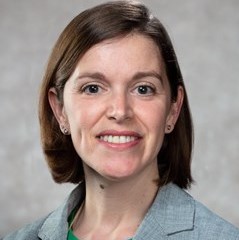
Gema Zamarro
Read Gema’s Bio
Background
Gema Zamarro, Ph.D. in Economics, is a Professor and 21st Century Endowed Chair in Teacher Quality at the Department of Education Reform at the University of Arkansas. Dr. Zamarro also directs Charassein: the Character Assessment Initiative, a research group for the study of measures and development of character skills. She is also an adjunct Senior Economist at the USC Dornsife Center for Economic and Social Research (CESR). Dr. Zamarro has performed research on applied econometrics in the areas of education and labor economics. She has completed studies on heterogeneity in returns to education, on the relationship between teacher quality and student performance, on the effect of school closing policies on student outcomes, on the properties of value-added methods for estimating teacher quality, on the effect of dual-language immersion programs on student outcomes, and on the causal effect of retirement on health, among others. Her current research focuses on the measurement and development of character skills and in particular, on the potential of measures of survey and test effort to proxy for relevant character skills.